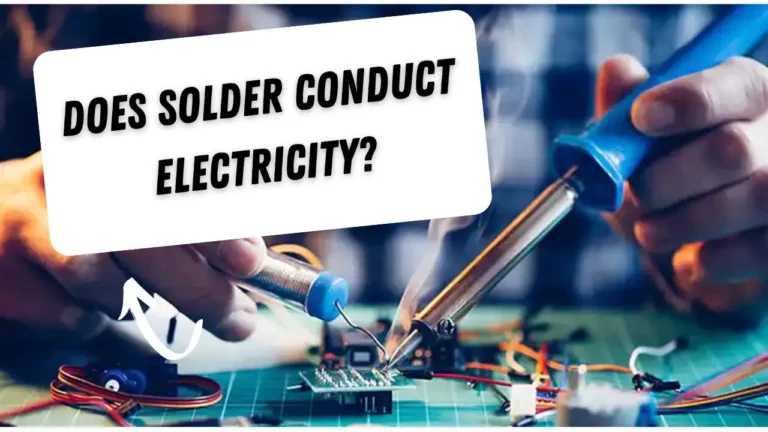How To Find Source Of Electrical Burning Smell?
It’s impossible to prevent electrical fires inside the house since they occur so frequently. They may occur day or night at any moment and may be caused by a variety of factors. It is exceedingly hard to pinpoint the source, though. How to find source of electrical burning smell? That query is addressed on this page.
How does a fire cause by electricity smell?
Both of these smells can be detected after an electrical fire. First is a pungent odor that is similar to burning plastic. This is reasonable given the possibility of on-fire plastic parts such as wire coverings behind the walls.
Some claim the smell of a fire caused by electricity smells fishy. This is a clue that the electrical problem has probably just begun if your house smells like fish rather than burning plastic. Electrical components overheat, yet they aren’t yet burned, which results in a fishy odor.
What creates the odor of burning electricity?

A fire that is electrically related might originate in a variety of ways. Here are a few of the most typical.
- Overloading
This occurs whenever a circuit receives an excessive amount of current all at once, which heats the cables and sets them on fire.
- A short circuit occurs
The short circuit that results from electricity flowing into some other wire after being caught inside one wire might start a fire.
- Circuits with ground faults interrupters (GFCI)
Such breakers identify the current flow in your foundation and shut off the electricity before any harm to your house is caused.
- Poor wiring
A person stepping over the electrical cable might result in a fault current that starts a fire, or it could be brought on by moisture, ice, or both.
MOSFET vs Relay; Best Comparison
rlc talk
How can I know if an electrical fire has started?

Frequently tripping circuit breakers
The frequent tripping of a circuit breaker is a red flag. There aren’t enough high amp devices hooked into one circuit, exceeding the circuit’s maximum amp capacity.
Switches include outlets that buzz, burn, or seem discolored
Don’t let buzzing or burnt surfaces touchable light fixtures or plugs. All of these indicate the presence of a difficult issue, such as defective wiring in or close to the socket or a foundation associated with the switches that might result in a short.
Knobs and plugs that are startling
In addition to being physically uncomfortable, mild shocks via switches as well as outlets are indeed a vital clue that something is amiss. The controls, outlet, or appliance hooked into the socket could have an issue. Dead outlets are another indicator of poor wiring.
The scent of burning
A newer appliance might emit a slight scent on the first occasion it is turned on. However, if anyone notices an odor coming out from the socket, disconnect anything that is attached to it and shut the device off. Before using it again, get it inspected by a licensed electrician.
Sparking
This is never good news. Equipment that sparks, however, can indicate that the fixture is broken. You ought to be eligible to have the equipment fixed or rebuilt within warranty if it is fewer than per year old.
Lighting that flickers or dims
Lights that flicker or fade often are an indication of poor wiring or an overloaded circuit. However, the issue could be with the lighting itself. If many lights are often flickering, there may be a significant electrical issue.
Connections and cables with damage, tearing, and exposure
Every electrical age wears out over time. Cabling and wires that are frayed, broken, or visible can catch fire easily and electrocute people.
How to find source of electrical burning smell?

As soon as you get on the site, inquire with the residents about any previous appliance usage. Try to pinpoint the smell to the area or location where it appears to be the greatest. The HVAC (heating, ventilation, and air conditioning) ductwork becomes an important area to inspect.
If the stench is originating from the HVAC system or if it has passed through it via a different place, it may be determined by checking its HVAC equipment. If an HVAC system is the source of the stench, you must follow it back into the network. You’ll probably need to gain admission here to the HVAC unit directly, which might be located in the building’s basements, electrical room, here on the roof, or from outside.
The majority of these ovens contain a safety mechanism that prevents the door from opening while the cleansing cycle is in progress. Pay particular attention to every towel or tissue that could be kept in cupboards linked to or care to heat sources while you search for fire spread to adjacent cabinets or spaces.
Despite the likelihood that the appliance is operating as it should, encourage the homeowner to speak with the maker or dealer. The sole option could be to turn off the electrical breaker that supplies the device if an owner is adamant that the self-cleaning feature is dangerous.
Search for dimming bulbs or even a bulb that seems different from the rest when inspecting the lighting visually. However, ensure there are repair workers or an electrical on standby to remove any problematic units.
Innumerable structural fires have been started by hot ballasts coming into touch with flammable objects within or above a roof. Wait until you can be sure the light hasn’t set the ceiling ablaze. When looking for overheated insulators, an infrared imager is functional.
Can you solder with a wood burner?
rlc talk
What to do about the stench of an electrical fire?
Following are some suggestions for eliminating the odor of an electrical fire.
- Allow fresh air to enter by opening your doorways and windows. This can assist in getting rid of any pollutants that could have been discharged during a fire and are now inside the house.
- To aid with the scent removal, get a blower.
- Another option is to combine baking vinegar and sodium bicarbonate in a basin with little water.
- To remove any lingering smoke odor, use a broom or brush to clean your whole home as well as the outside of your building.
- To prevent mold from growing within your house or apartment complex, try to drain away all wetness after cleansing.
- Install more air fresheners throughout the home in order to cover up any odors left over from fire hazards that may have occurred in places other than the kitchens or basements, where nobody was hurt in a current fire incident at the property.






